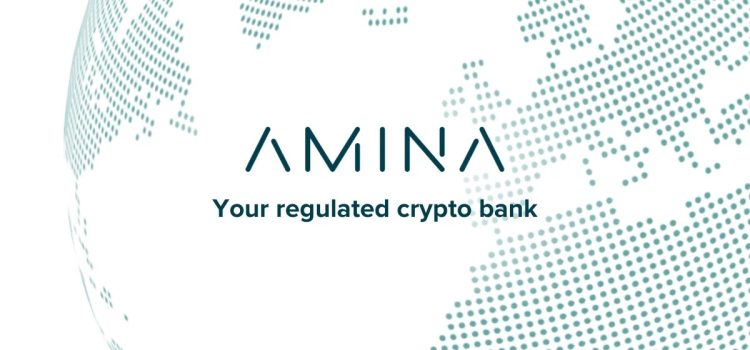UAE based AMINA Bank, previously know as SEBA crypto bank, regulated in Abu Dhabi ADGM, has published an interesting article on Ethereum, and ETH being designated as a security. According to AMINA Bank, the question on the minds of Ethereum investors is whether or not Ether is a security given the pending US decision on spot Ether ETFs ( Exchange Traded Funds).
As per the article on one hand, the US Commodity Futures Trading Commission (CFTC) has defined ETH, along with several other cryptocurrencies, as commodities. Conversely, US Securities and Exchange Commission Chair Gary Gensler has refrained from providing a clear stance. This was further amplified during his Congressional hearing in April 2023, he repeatedly avoided giving a definite answer. Even recently, he did the same in an interview – refused to give a clear answer to the question. This lack of clarity has left the crypto community uncertain about the possibility of a shift for the cryptocurrency from its current legal ambiguity.
Concerns escalated when the Ethereum Foundation recently disclosed being subpoenaed by an unnamed “state authority,” suspected by many to be the SEC, although Fortune claimed it was the US SEC, unconfirmed by the SEC itself. Although there were bigger factors in play, this regulatory uncertainty has partly contributed to the abysmal performance of ETH relative to BTC since the start of 2023.
To confront the SEC and address ETH’s legal standing, Ethereum software development firm Consensys has filed a lawsuit recently. The lawsuit says that the SEC lacks jurisdiction to regulate global, peer-to-peer computer networks and this includes Ethereum.
Consensys argues that the SEC’s extensive reach into commodities, software, and emerging technology platforms is illegal. According to the lawsuit, if the SEC’s influence prevails, it could nullify efforts by Congress, the Federal Reserve, and the Treasury on stablecoins, undermining established US policy priorities and granting technological superiority to nations beyond the US.
AMINA Bank believes that it currently seems unlikely that ETH will be declared a security. However, for investors, it is important to understand the implications if it were to go the other way, so let’s dive in. To state the obvious, if ETH were indeed designated as a security, it would pose significant risks to the entire crypto and decentralized finance (DeFi) ecosystem. ETH currently is the backbone of DeFi, being extensively integrated within it. It functions as the native gas token for the Ethereum blockchain and its scaling solutions.
It serves as widely accepted collateral in DeFi and boasts of the largest developer community in the crypto space. Once a security, all infrastructure that lets users use ETH could be seen as unregistered securities brokers. Exchanges seeking to list Ether would need to register as securities broker-dealers with the SEC. Most teams in crypto may exit the space if subjected to such operational complexity.
Another possible implication is that protocols may start prefering Proof-of-Work (PoW) consensus. In a Proof-of-Stake (PoS) system, entities with larger token holdings have a greater chance of validating the next Ethereum block and receiving block rewards for the same in ETH.
Gensler has suggested that such PoS chains, rewarding users for locking up their coins, resemble investment contracts and could be deemed securities, without specifically mentioning ETH. Given that most major blockchains, apart from PoW Bitcoin, work on PoS like Ethereum, regulators might extend similar classifications to them.
Additionally, non-ETH tokens hosted on the Ethereum blockchain could also face repercussions due to being so closely integrated with a supposed security (ETH). This is why new blockchains may want to then go back to the PoW consensus mechanism to avoid regulatory scrutiny.
It’s fair to say that this would not only put a hold on but potentially even reverse years of progress across the cryptocurrency market. This is a doomsday scenario for cryptocurrency investors which currently is unlikely to happen.
The argument against ETH being classified as a security revolves around the nature of ETH tokens themselves. Unlike stocks or bonds, ETH tokens do not represent legal ownership of any business entity. They are essentially code stored in a decentralized database. When considering whether ETH qualifies as a security, the crucial question is whether the offer and sale of ETH tokens constitute an investment contract under the Howey test.
The Howey Test is used in the US to determine whether certain transactions qualify as investment contracts. Under the Howey Test, a transaction is an investment contract if:
It is an investment of money.
The investment of money is in a common enterprise.
There is an expectation of profits from the investment.
Profits come from the efforts of some particular others.
At the time of Ethereum’s ICO in 2014, when the community was smaller, ETH may have met the criteria of the Howey test. This is because participants likely invested money expecting profits based on the efforts of a few select others like founder Vitalik Buterin and some core developers.
There was also an expectation of profit for ICO investors. It could have also been considered a “common enterprise” due to the founding team being the only members of the Ethereum community at the time of ICO. However, the SEC did not act then.
Today, several factors suggest that ETH does not meet the Howey test criteria the way it is right now. Firstly, with the rise of DeFi, ETH serves as more than just an investment – it also has utility in paying gas fees for transactions onchain.
Additionally, Ethereum has become increasingly decentralized with a diverse developer community (over 7000 monthly active developers throughout 2023) and network success no longer dependent solely on the efforts of specific individuals like the Ethereum Foundation. From a security standpoint, there is no single gatekeeper. The total number of active validators for Ethereum has exceeded the 1 million mark, according to data from Glassnode.
Many were concerned as liquid staking provider Lido Finance neared the 33% threshold mark in percentage of ETH staked. However, this is now down to 28% at the time of writing. Also, Lido is not a single entity and currently has over 30 node operators.
But does Proof-of-Stake make ETH a security as Gensler believes? In PoS, running a validator node on the Ethereum network is considered a service, not an investment scheme. This is because rewards are contingent on honest behavior during validation.
Dishonest actors may face slashing of their stake. However, staking services provided by centralized platforms like Coinbase or Kraken may blur the line, potentially exposing providers to legal action. Nonetheless, this does not affect ETH’s classification.
As obvious as it may sound, another reason why ETH may not be classified as a security is because it currently is not so. CFTC has allowed ETH futures trading and has explicitly stated ETH as a commodity. This reinforces the argument against ETH being classified as a security. The SEC’s approval of ETH futures ETFs for trading on regulated security exchanges also underscores ETH’s non-security status and falls outside the SEC’s jurisdiction.
AMINA Bank article concludes that it seems that the US SEC is refusing to take a clear stance on this matter in order to confine ETH within a grey area, thereby allowing it to delay the decision on the applications of the US spot Ether ETFs filed by financial behemoths like BlackRock, Fidelity, Greyscale and others.
A complete list of Ether ETFs can be found here. Regardless of the SEC’s eventual decision on ETH’s security status, we hope it positively contributes to the future of crypto and finance.











